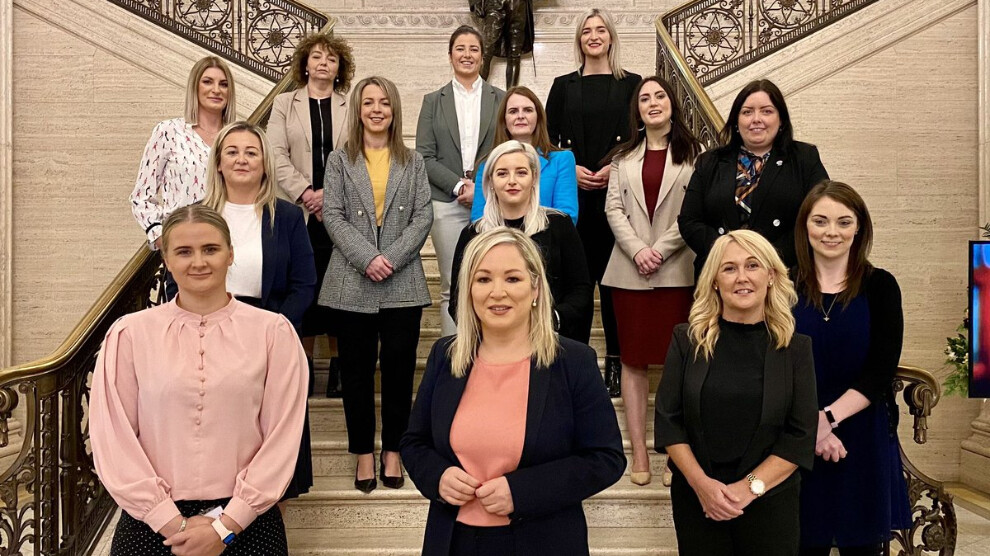While counting continues, Sinn Féin remains the big winner from the Stormont Assembly election, with Sinn Féin’s Michelle O’Neill now certain to become First Minister-elect.
DUP leader Jeffrey Donaldson has confirmed he will veto the formation of the executive.
Sinn Féin received 250,388 first preferences, compared with 184,002 for the DUP and 116,681 for the Alliance Party. This means that it received 29% of first preference votes, compared with 21.3% for the DUP, 13.5% for Alliance, 11.2% for the Ulster Unionists and 9.1% for the SDLP.
In terms of seats, Sinn Féin took an immediate lead after fourteen of its candidates were elected on the first count, even in unionist-dominated areas such as North and South Antrim.
So far the party has 18 seats, the DUP on 14, Alliance on 10, the Ulster Unionists on 4 and the SDLP on three. The rest of the 90 seats will be decided later today.
The outcome produced a predictable response from the Tory media, with the Daily Telegraph publishing a large front page headline warning that “Victory for Sinn Fein stokes fears of a united Ireland”.
Calculations that more nationalists than unionists have voted in a Six County election for the first time has also sparked a debate over party designation.
There are fresh questions over the attitude to a border poll of the cross-community Alliance Party, now the third largest in the north of Ireland, as well as People before Profit, who support a border poll, but do not designate themselves as nationalists.
With counting ongoing, Sinn Féin leader Mary Lou McDonald hailed her party’s achievement in electing the First Minister in the Executive.
“Just remember that this place was organised more than a century ago, to ensure that a Michelle O’Neill would never occupy the position of First Minister. It’s a great moment for equality,” she said.
She also said she believes that a referendum on the reunification of Ireland could take place within the next five years.
Ms McDonald said partition has been “disastrous” and that there will be constitutional change on the island of Ireland within the next decade.
“We believe Irish unity is the best plan, the biggest opportunity for all of us who live on this island. Partition has been disastrous, led to conflict and no end to hardship but it has to be done in a way that is planned, orderly, democratic and entirely peaceful,” she told The News Desk on Talk TV.
“So, I would say this, in the first instance, we need to start planning now for the change ahead, and that has to involve all of us.”
When asked when she would like to see a referendum in the North and one in the South to take place, McDonald said within the next decade, adding that she believed they would be possible “within a five-year timeframe”.
“But much more importantly, I believe that the preparation needs to start now.”
In other election news, the Green Party leader Clare Bailey has lost her seat in south Belfast, while Ulster Unionist Party leader Doug Beattie remains in grave difficulty in Upper Bann.
Traditional Unionist Voice leader Jim Allister was returned in north Antrim but once again failed to elect a second Assembly member.
There was a further setback for the beleaguered SDLP when party veteran Pat Catney lost the sole nationalist seat in the Lagan Valley constituency.














